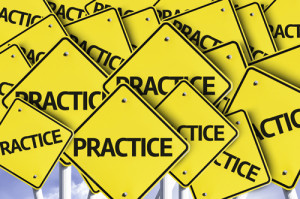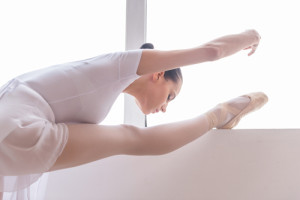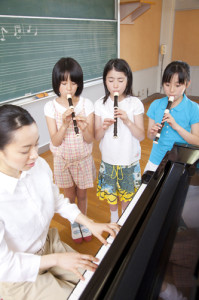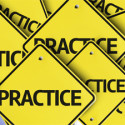Arts educators are also artists who are constantly practicing and learning to expand their own understanding and abilities.  This commitment to practice and lifelong learning comes from the discoveries and knowledge gained through artistic expression and creativity in their art form. They are painters, photographers, sculptors, musicians, conductors, dancers, actors, choreographers, and designers who not only create art with students during the day, but they also live it when they’re outside the classroom. They are active as artists on days off, holidays, evenings, and weekends—it’s a way of life. Arts learning is a synergistic effort with students and teachers working together in a continuous effort to gain more knowledge.
This commitment to practice and lifelong learning comes from the discoveries and knowledge gained through artistic expression and creativity in their art form. They are painters, photographers, sculptors, musicians, conductors, dancers, actors, choreographers, and designers who not only create art with students during the day, but they also live it when they’re outside the classroom. They are active as artists on days off, holidays, evenings, and weekends—it’s a way of life. Arts learning is a synergistic effort with students and teachers working together in a continuous effort to gain more knowledge.
We learn by practice. Whether it means to learn to dance by practicing dancing or to learn to live by practicing living, the principles are the same.
~ Martha Graham
 Becoming an accomplished and knowledgeable thinking artist takes hours of study and practice. The constant effort to grow and learn and the commitment to deeper awareness of expression in their art forms require practice and a lifetime of study. But it isn’t mindless practice; it’s practice that is deliberate and focused with clear goals and objectives. When artists practice, they break down their skill into clearly defined elements and work intently on an element they want to improve the most. Teachers in the arts continue to study with their own teachers. They learn to analyze new information, evaluate and process it, and apply it in their own art, their teaching, or in their own life situation.
Becoming an accomplished and knowledgeable thinking artist takes hours of study and practice. The constant effort to grow and learn and the commitment to deeper awareness of expression in their art forms require practice and a lifetime of study. But it isn’t mindless practice; it’s practice that is deliberate and focused with clear goals and objectives. When artists practice, they break down their skill into clearly defined elements and work intently on an element they want to improve the most. Teachers in the arts continue to study with their own teachers. They learn to analyze new information, evaluate and process it, and apply it in their own art, their teaching, or in their own life situation.
Art does not solve problems but makes us aware of their existence.
It opens our eyes to see and our brain to imagine.
~ Magdalena Abakanowicz
You can learn to practice with the focus of an artist, enhance your understanding of your world, and learn even more by sharing that knowledge with others. The first step an artist must take in practice is to identify problems and devise a practice that changes that problem into an asset.
How can you use the problem identification and lifelong practice skills of an artist in everyday life?
[sws_checklist]
- Identify something in your own life experience that needs a solution—specifically identity the need.
- Be grateful for the awareness of the problem.
- Practice a new way of being in relation to the problem—a new way of communicating, a new way of organizing, a new way of thinking.
- Evaluate your progress as you practice and adjust along the way.
- Identify new problems that arise as you experience each day and devise a deliberate practice.
- Be open to ongoing practice for a lifetime of learning and sharing with others.
[/sws_checklist]
 Don’t only practice your art, but force your way into its secrets; art deserves that, for it and knowledge can raise man to the Divine.
Don’t only practice your art, but force your way into its secrets; art deserves that, for it and knowledge can raise man to the Divine.
~ Ludwig van Beethoven
Arts educators work with what they have at hand, they look for growth in every experience, and they try to use everything at their disposal to achieve their goals. They’re often appreciative of challenges, obstacles, and setbacks because once brought to their attention, they have the information they need to devise a planned and purposeful practice that strengthens the area. They work with a concerted effort in performance, in teaching, or in the studio putting many things together to create art, experiences, and opportunities to practice and grow and learn.
— Pat
